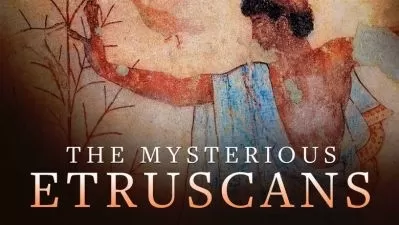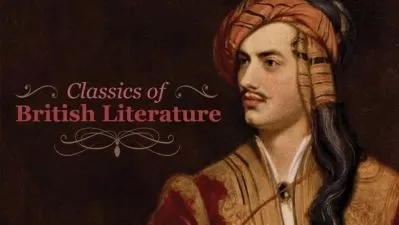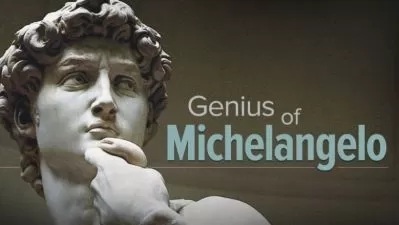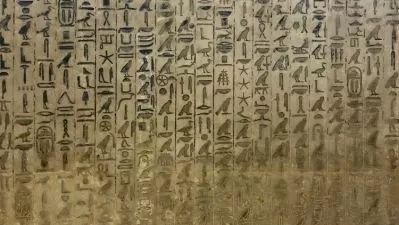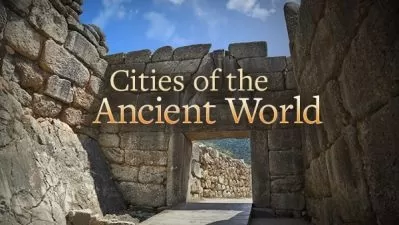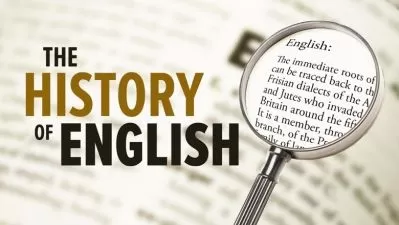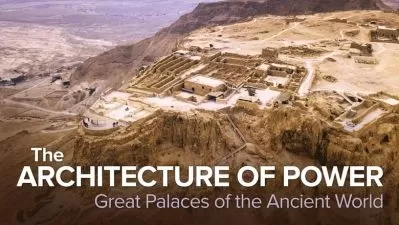Books That Matter: The Analects of Confucius
Robert Andre LaFleur
12:46:50
Description
Almost everyone is familiar with the name Confucius, but not as many are familiar with the impact his philosophy has made on the world at large—although, at heart, his teachings tackle many of the same philosophical issues as those of ancient Western philosophers such as Plato and Socrates. And like those seminal western philosophers Confucius's concepts of how life should be experienced, the dynamics between citizen and government, the structure of family, and his views on how to operate in an increasingly turbulent society remain relevant hundreds of years after his death. They formed the philosophical backbone of East Asian civilization as well as influencing the Western world in innumerable ways.
The Analectsof Confucius is a collection of ideas that manifested sometime during the 5th century BCE when devoted students of this great Chinese philosopher began compiling and writing down their master’s sage advice on how to live. Although often overlooked as required reading in Western societies, it has gone on to become one of the greatest books in human history, and much of the socio-political life we take for granted has roots found in the teachings of Confucius.
Philosophy itself has a reputation that makes it seem inaccessible to the uninitiated, but the Analects of Confucius is a collection of philosophies and ideas that come from a thinker who was first and foremost a teacher—making it anything but dry ancient philosophy. Many of the passages in the book are ambiguous, contradictory, and even maddening. It is populated with characters and conversations, reflecting a different approach to understanding life than that undertaken by great minds of the Western tradition. Getting to the heart of the Analects—and its importance—a challenging and undeniably exciting intellectual pursuit.
With Books That Matter: The Analects of Confucius, you will enjoy an adventurous exploration of one of the world’s most important philosophical texts. In 24 accessible lectures crafted by Professor Robert André LaFleur of Beloit College—an award-winning instructor and expert on Chinese history and literature, who is currently working on his own complete translation of the Analects—you’ll broaden your philosophical view of the world, and of East Asian history, and you’ll discover why this book still matters to us today. Filled with rich historical context, detailed close readings of key passages, expert interpretations of larger cultural trends, and stories of Confucius and his most notable students (and critics), Professor LaFleur’s course is required learning for anyone who wants a solid understanding of Eastern philosophy and the ways a single book can cross cultures and go on to inspire entire generations across the globe.
Like many great books, its lessons are just as timely today as they were thousands of years ago. The Analects lives on in modern China, powering one of the world’s next great superpowers. It also extends its influence throughout much of the Western world, where its ideas on political life, personal development, familial obligations, social duties, and human connectedness intrigue and inspire anyone curious about what it means to be alive.
Explore Confucius’s Philosophical Legacy
“The Analects is a text that rewards patience, curiosity, contemplation, and effort,” Professor LaFleur says. “Centuries of people have reaped these rewards, and have been guided in their own work by its teachings.” And with Books That Matter: The Analects of Confucius, you can reap these rewards as well.
Blending history, literature, philosophy, cultural studies, and biography, these lectures provide a comprehensive look at a great book that, it’s important to remember, Confucius didn’t actually write. Rather, the Analects was the product of a legacy of collecting—a compilation of ideas attributed to Confucius that didn’t take its present (rather perplexing) form until centuries after the thinker’s death.
How does this lack of direct authorship influence our understanding of what these lessons teach us? This is just one of the many intriguing questions you’ll consider, as well as:
- How was the Analects meant to be read—and how should new readers approach it?
- How did the Analects anticipate the chaos of China’s Warring States period?
- How did Confucian thought merge with political life during the Han Dynasty?
- How did Confucianism become so linked with China’s civil service examinations?
- How does the Analects relate to other central texts of Confucian thought?
- How did the teachings of the Analects eventually migrate to the West?
Investigate Powerful Confucian Ideas
Professor LaFleur takes you deep inside the historical moments and trends that informed Confucius’s teachings, which sought a simpler way of life to combat the political chaos of ancient China. After grounding your approach to the Analects with a look at what we know (and don’t know) about Confucius’ life, career, and teaching philosophy, you’ll examine some of the book’s most powerful, central themes.
- Remonstrance: At its core, remonstrance is the duty of a child to “correct” the actions of an adult. In the Analects, this obligation is intended to provide a necessary corrective to prevent fathers from imperiling their families—or rulers from ruining the state. For Professor LaFleur, this idea is at the heart of Chinese social and political life.
- Consummate conduct (ren): Consummate conduct is one of the most complex of Confucius’s teachings and is never explicitly defined. What’s important to remember about this idea—which reveals the true depth of Confucian philosophy and negates the claims of Confucius’s critics—is that it’s not just a lifestyle choice. It’s a matter of life or death.
- Ritual (li): Confucius believed ritual propriety should always be carried out with lively spontaneity. In performing rituals, one must always be attentive to both grand cosmological concepts and tiny details. Ritual practice, as explored in the Analects, wasn’t just stuffy rule-following but a physical and musical outlet for true joy.
- Effective rule: What makes an effective ruler? For Confucius, true leaders (and their officials) have to ground themselves in morality and integrity. In short, they had to be true “social characters.” Effective rule, in Confucius’s day, was already a rarity—and it would only become rarer after his death.
Follow the Millennia-long Story of the Analects
As you illuminate your understanding of key passages in the Analects, you’ll also meet the students, philosophers, and statesmen who, in their own ways, contributed to the millennia-long story of this enduring book. These are the individuals responsible for recording Confucian thought, critiquing it, building on it, pillorying it, and resurrecting it for the modern age.
You’ll learn
- why Yan Hui was Confucius’s favorite student and the embodiment of everything the philosopher valued in a scholar;
- how Mencius’s collected writings, the Mencius, work as both a spirited defense of the Analects and a significant expansion on its central ideas;
- why the Legalist philosopher Han Fei believed Confucians were “fuzzy-minded dilettantes” for looking to the past for appropriate models of government; and
- how the historian Sima Guang’s reinterpretation of Confucian ideas was enormously influential in adapting the lessons of the Analects for later centuries.
Make the Analects Work for You
The winner of multiple teaching awards, Professor LaFleur takes much of the intimidation out of this ancient—but still very relevant—text. His lectures are packed with context that allows Confucius’s wisdom to speak directly to you and your experiences, as well as those of thousands of years of Chinese history.
Perfect for both audio and video, the video lectures of Books That Matter: The Analects of Confucius add another engaging level to your learning experience, including:
- timelines and maps that help you make sense of China’s epic past;
- artwork and artifacts from the time of Confucius (and beyond); and
- visual translations of the Chinese text of the Analects into English.
As with all great philosophical experiences, the Analects is a work whose intellectual richness and insight remain with you long after you’ve read the final passages. So, too, will these lectures, which will help illuminate Confucian teachings—and make them work in your own life.
More details
User Reviews
Rating
Robert Andre LaFleur
Instructor's CoursesProfessor Robert André LaFleur is Professor of History and Anthropology at Beloit College in Wisconsin, where he has taught since 1998. Having graduated magna cum laude and Phi Beta Kappa from Carleton College, Professor LaFleur received his doctorate from The University of Chicago’s John U. Nef Committee on Social Thought, where he combined work in three distinct fields: anthropology, history, and Chinese literature.
Professor LaFleur’s current work combines historical research using Chinese, Japanese, and Korean sources with anthropological fieldwork on each of China’s five sacred mountains. He is also doing research for an intellectual biography of Marcel Granet, a French scholar of China.
Professor LaFleur received the Charles S. Bassett Teaching Award from Colby College in 1998, as well as the James R. Underkofler Excellence in Undergraduate Teaching Award from Beloit College in 2001 and 2011. He was also a finalist in 2010 for the Eugene Asher Distinguished Teaching Award from the American Historical Association. He is the recipient of a Millicent C. McIntosh Fellowship from the Woodrow Wilson National Fellowship Foundation and has been a frequent visiting scholar with the University of Wisconsin’s Institute for Research in the Humanities and the East-West Center in Honolulu. In 2013, Professor LaFleur gave a month-long series of lectures and seminars at Beijing University. He spent 2014 on a research fellowship at the Internationales Kolleg für Geisteswissenschaftliche Forschung (International Consortium for Research in the Humanities) in Erlangen, Germany.
Professor LaFleur is the lead author and editor of two textbooks: China: A Global Studies Handbook and a thoroughly revised and expanded version, Asia in Focus: China. He has published book chapters and articles about topics ranging from Chinese historiography, literature, and calendars to ethnicity and mythology. He also has presented dozens of research papers on topics ranging from China, Japan, and Korea to the history and anthropology of Oceania.

The Great Courses
View courses The Great Courses- language english
- Training sessions 24
- duration 12:46:50
- English subtitles has
- Release Date 2023/04/27







